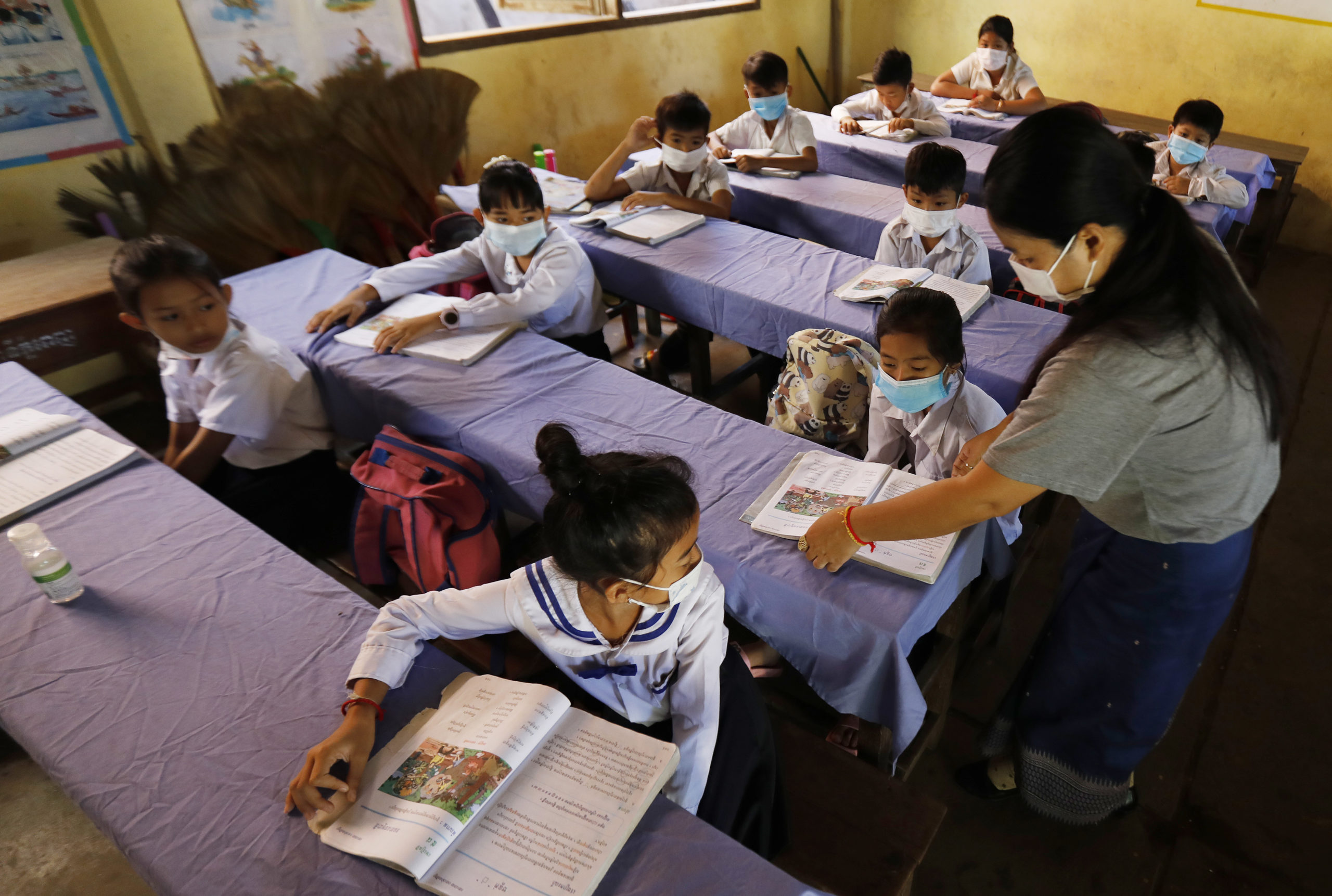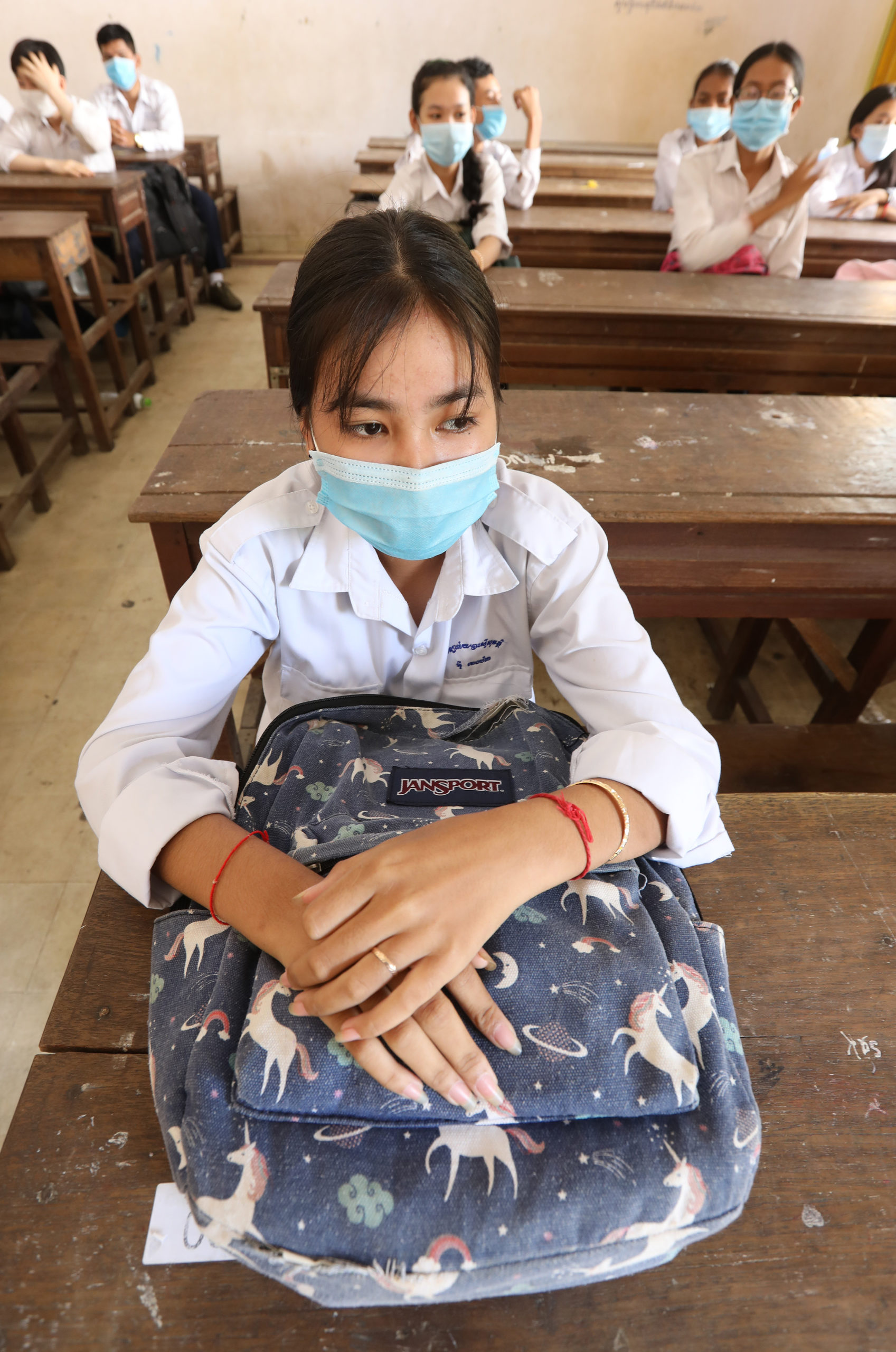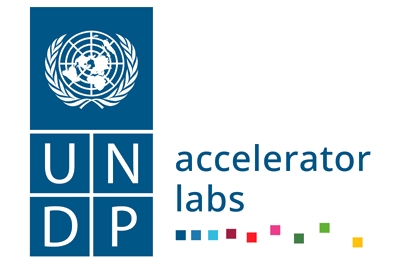The 21st century is set to be defined by the Fourth Industrial Revolution, showcasing the possibilities of interconnection between billions of people across the globe through mobile devices and the internet.
It’s an exciting prospect, but it also means traditional pedagogy, often built around learning specific information or mastering one skill set, is no longer adequate to prepare future graduates for the world beyond education. Employability today increasingly demands workers address complex challenges through critical thinking, creativity, communication and collaboration.
According to the World Economic Forum article What are the 21st-century skills every student needs?, the personal qualities that are increasingly relevant in the modern workplace are self-awareness, emotional intelligence, flexibility and adaptability, willingness to learn, lifelong learning and stress tolerance.
The ongoing Covid-19 pandemic is a poignant example of the importance of these traits, with many people in Cambodia and across the world having lost their jobs, especially in the service and hospitality industries. Maybe now more than ever, people need flexibility and adaptability to develop themselves to align with the new normal, seek a new job, possibly in a new field, and to tackle unprecedented challenges.
Industry leaders in Cambodia are already emphasising a need for a nimble workforce with soft skills useful for an array of different tasks. Meeting this demand will require an education system and teachers that promote a new kind of learning across all grade levels.
Teachers are a key component and model figure for students to develop curiosity, grit, leadership, social and cultural awareness, and more importantly a mindset of lifelong learning. In order to equip students with adaptability and important life skills, it is necessary for teachers to have applicable knowledge of those skills. Their lessons should be focused on practical skills by connecting students to day-to-day life, building competence in the vital areas of critical thinking, adaptability, creativity, problem-solving and communication.
Cambodian teachers should be given more opportunities to be part of professional development programmes beyond their classroom. The modern economy as a whole tends to favour those with a drive to further their education, and teachers are no exception. By improving their own skills in these future-facing areas, teachers can improve their own abilities to participate in 21st century learning, utilise information and communications technology (ICT) and share leadership practices with students.

Besides giving students a safe environment to develop their minds, the public education sector also plays a vital role as the foundation for Cambodia’s human resources development, equipping students from a young age with relevant skills that align with social change.
Given their wide importance to society, teachers in the modern world should be especially well-rounded and flexible, ready to adjust with a fast-paced world. But for the most part, the Cambodian education system hasn’t changed much to keep up, still practicing mainly a traditional pedagogy that favours rote memorisation and reciting facts, as opposed to true problem-solving.
But there are some initiatives today to change that.
The Royal Government of Cambodia has in recent years set a number of priorities for human resource development as a goal for public education, with the Ministry of Education, Youth and Sport (MoEYS) setting focus areas in teacher qualification and skills education for the job market.
In its policy plans, the Ministry has highlighted reform in school pedagogy and continued professional development for principals and teachers. For K-12 schools, the MoEYS has created a more decentralised system that places schooling in a more localised context, and is therefore more adaptable to local needs.
To equip students with ICT knowledge and skills to transition them into 21st century employment, the MoEYS is also focusing on ICT integration for teaching and learning – a process intended to share knowledge across the whole education sector.
In post-secondary, higher education, the Ministry is also focused on increasing science, technology engineering and maths (STEM) resources in response to the implementation of the Kingdom’s Industrial Development Policy of 2015-2025, an ongoing plan to modernise the economy as a whole. For higher education, the ministry is also promoting a number of goals in life-long learning and equity and inclusion.
These youth leaders are thoughtful about connecting resources, building basic numeracy and literacy skills, and broadening student outcomes – including grit, growth mindset, creative problem-solving
Non-governmental organisations are also working to improve education, collaborating with MoEYS to tackle the issues of teacher training and continued professional development.
Teach For Cambodia (TFC), an organisation working with the Education Ministry and global programmes such as Teach For All (TFA), develops local youth to become education leaders working full-time in public schools. The national organisation works with TFA to design and deliver five-week residential training programmes for their young teachers, known as TFC fellows, focusing on growth mindset and pedagogy.
Fellows are trained to motivate students and expect the highest from them. That includes helping students build essential skills, attitude and mindsets. Additionally, in order to ensure the continued learning of skills among fellows, TFC provides fellows with an education master’s programme at the Royal University of Phnom Penh in Curriculum and Instruction in order to create and implement an innovative approach to teacher education.
The master’s programme trains TFC fellows with research skills, pedagogy techniques, curriculum development and education content needed to become 21st century leaders in teaching. The benefits of this flow into the classroom, helping teachers to better train their students to be effective human resources.
Monirath Siv, founder and CEO of Teach For Cambodia, told me: “These youth leaders are thoughtful about connecting resources, building basic numeracy and literacy skills, and broadening student outcomes – including grit, growth mindset, creative problem-solving. These are key to the future of education, as well as the base for future work and the digital economy.”
In 2018, the organisation began to place fellows in schools across Cambodia. To date, more than 60 fellows have entered the programme, myself among them, working with thousands of marginalised children.
“We have many success stories of our fellows as they give students access to life-changing opportunities,” Monirath said. “In the rural Kandal community, three 2018 fellows collaborated to raise funds and build the first computer lab in the school, design a computer curriculum and teach students. Many had never touched computers before.”
Monirath also mentioned the story of a fellow named Theangsreng Chhour, a teacher at Cheasim Chruychongva high school in Phnom Penh. Theangsreng’s students had never learned about IT, but from his mentorship they completed coding coursework (Coding Cat), eventually joining the World Robotics Olympiad. Theangsreng’s students then organised their own STEM showcase in the school and used their leadership to mentor younger students, creating a ripple effect through the community.
TFC also partners with the private shipping and courier service DHL Cambodia on their many youth employability initiatives, one of which is the upcoming DHL Youth Camp, a programme focused on future sustainable leadership. Through the camp, 26 students from Kandal province will be immersed in a community of professionals, learn about the environment and sustainability, while gaining basic employability skills like CV writing, job interview techniques, teamwork and communication.

But these skills aren’t just needed for a career at DHL, with Smart Axiata, a telecommunications company in Cambodia, and ABA bank, a prominent name in Cambodia’s fintech industry, telling me these and other soft skills are crucial for jobs at their companies.
Representatives of both companies said they most wanted to hire people with the right mindset and values, such as a personal growth, grit and self-leadership. On the technical side, the representatives listed factors such as comfort with new technologies, including artificial intelligence and machine learning, as well engineering, adding that future job opportunities are moving to those fields.
“With the aforementioned skills and especially the mindsets, people will be able to reinvent themselves for any future uncertainties,” a Smart Axiata representative said.
It is clear that traditional pedagogy of learning specific information becomes less effective while the world is so quickly advancing
In 2015, the World Bank classified Cambodia as a lower middle-income country. But national ambitions go further than this, and state leaders have set a vision for the country to reach an upper-middle income status by 2030.
For this to happen, the country must transition to a more high-value economic model and our education and people adapt. In past years, Cambodia’s banking and finance sector has grown quickly, and boosters of the ICT sector say the area is in position to ‘leapfrog’ older technologies to modernise more quickly. Such a move would shift jobs into science, engineering and technology – areas that require a mastery of both soft and technical skills currently lacking in the education system.
With this in mind, it is clear that the narrow techniques and outcomes of traditional pedagogy become less effective while the world is so quickly advancing. The education system and teacher training programmes should move fast to upgrade in order to fit into this new world of change – focusing on soft skills like adaptability, helping students prepare for the emerging workplace.
Phannaro Nhem is a Teacher For Cambodia fellow, currently teaching mathematics in a public school in Phnom Penh. Naro is also a reporter for the Globe’s Khmer-language sister publication Focus-Ready For Tomorrow, covering stories on health, LGBT issues and education. This story is the fourth in a series produced in partnership with UNDP Cambodia, which will, over the coming months, aim to drive national dialogue on the future of innovation, youth employment and skills development in the Kingdom.



